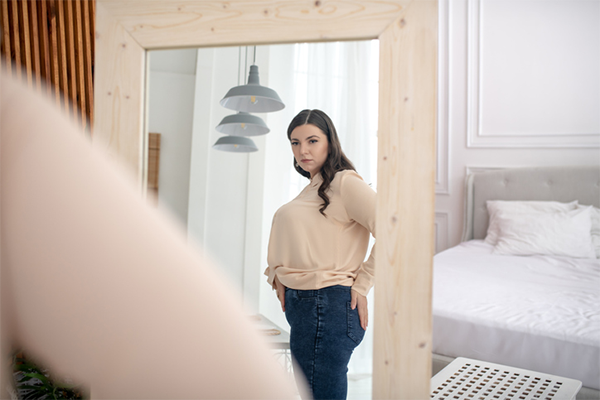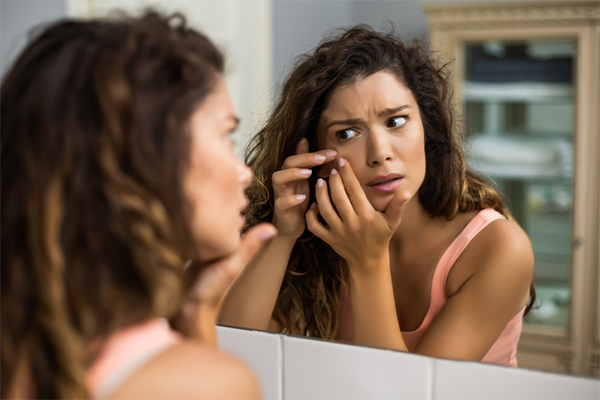At some point, almost everyone is concerned about their appearance. But there’s a meaningful difference between the occasional self-criticism and a mental health issue known as body dysmorphia or body dysmorphic disorder (BDD).
To help shed some light on what constitutes body dysmorphia, we spoke with two mental health experts. Here’s what they had to say about what’s normal and when to seek help.
What Is Body Dysmorphia?
Body dysmorphia is a body-image disorder that “causes the individual to think about real and perceived flaws for hours on end,” explains Candice Seti, PsyD, CPT.
A person struggling with body dysmorphia fixates on parts of their body — most commonly, the hair, skin, stomach, or chest, according to Seti — to the point that it interferes with their daily life.
“Sometimes the flaws are minor or insignificant, while other times they are completely imagined altogether,” Seti says, adding that these faults are very real for the person with BDD.
“They will continuously look at themselves or groom themselves to find assurance in their appearance. Some may also go as extreme as getting procedures done to enhance their appearance and rid themselves of the (perceived) flaws,” she adds.
Potential Causes of Body Dysmorphia
“There is no one single cause of BDD,” says Kristi Beroldi, licensed professional counselor at Thriveworks in Reston, Virginia. “However, individuals who have BDD may have delusions of reference, which means that they believe that people take special note of them due to how they look.”
Body dysmorphia is likely the result of a complex combination of both biological and environmental factors.
And while body-image disorders tend to be associated with young women, BDD may develop in a person of any age or gender.
Here are some of the potential risk factors for BDD:
- Family history of BDD or other obsessive-compulsive disorders
- Anxiety or depression
- Certain brain abnormalities
- A history of bullying or other negative experiences related to physical appearance
- Cultural or societal pressure regarding standards of beauty
- Perfectionism
- A general disdain for one’s appearance
Symptoms of Body Dysmorphia
Mental health professionals use a variety of assessment tools (some of which can be used by individuals to determine whether or not to seek help) to diagnose BDD, but here are some common body dysmorphia symptoms:
- Spending hours each day focused on one’s appearance
- Repeatedly performing assuring behaviors, like looking in the mirror
- Excessive grooming, such as applying makeup or hair brushing
- Picking at skin
- Constantly comparing oneself to others
- Repeatedly changing clothes
- Excessively tanning
- Excessively exercising
- Avoiding social situations
- Seeking cosmetic surgeries
In short, body dysmorphia can be all-consuming.
“These preoccupations are intrusive, time-consuming, and difficult to manage,” Beroldi says. “This preoccupation causes increased distress and decreased functioning in multiple areas of life including work, school, social relationships, and the ability to take care of oneself.”
Body Dysmorphia: Treatment Options
BDD is a serious mental health disorder that requires professional treatment.
“Depression and anxiety are common traits in those suffering from body dysmorphia. Without treatment, these thoughts and features can lead to more severe self-harm,” Seti says.
A licensed mental health professional can provide therapy designed to help the individual “learn how to control their thoughts and be kinder to themselves,” Seti says.
In some cases, prescription medication may also be appropriate.
How to help someone with body dysmorphia
If you suspect that a friend may be struggling with BDD, you can offer support by encouraging them to seek treatment, refraining from making negative comments about your own appearance (this can be triggering to someone with BDD), and demonstrating compassion.
The post What Is Body Dysmorphia? appeared first on BODi.
from BODi https://ift.tt/tGLnB43




Post a Comment